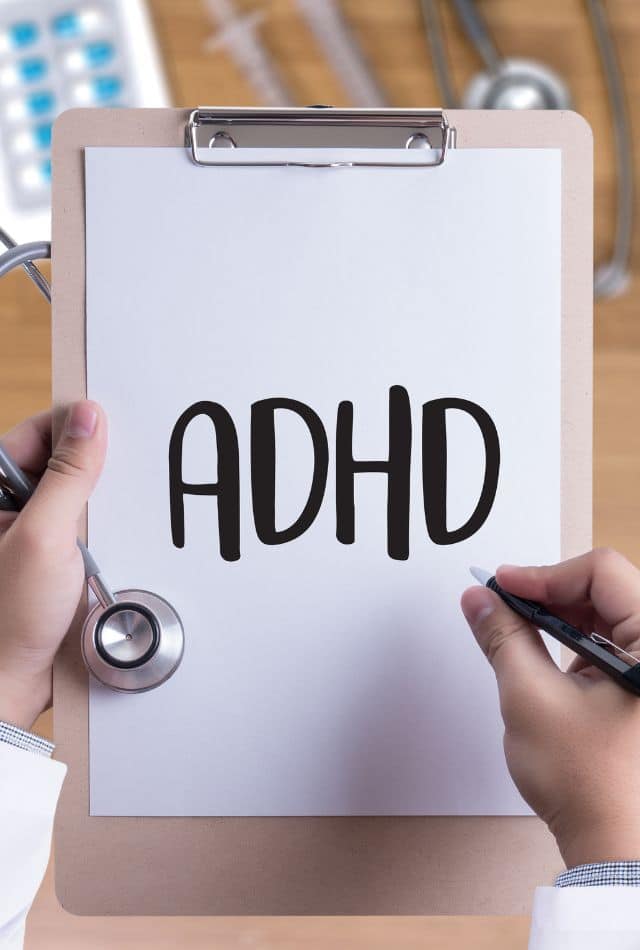Is ADHD Genetic? – Overview
Attention Deficit Hyperactivity Disorder (ADHD) tends to run in families and seems to have a strong link to the person’s genetics.
Research has identified multiple genetic variants that increase the risk of ADHD, suggesting a complex interplay between genetics and environmental factors in the development of the condition.
In addition, as the disorder is very complex, researchers are still to discover a direct relationship with a particular gene or set of genes. This shows that a person’s surroundings also significantly affect the likelihood of developing ADHD.
What is ADHD
ADHD makes it difficult to pay attention to the tasks at hand, especially if the task is not particularly stimulating. This often causes them to become careless and make mistakes. People suffering from ADHD also have difficulty managing themselves in situations that require constant mental effort.
There are several types of ADHD, but patients (adults and children) usually experience the following signs and symptoms more commonly:
- Forgetting things
- Daydreaming often
- Taking unnecessary risks
- Fidgeting significantly
- Unable to wait their turn
- Being impulsive
- Being careless at work
- Unable to sit or stand still
- Difficulty following instructions
- Talking excessively
- Experiencing constant distractions
- Interrupting people frequently
- Losing things easily
Some symptoms of ADHD may also differ in children between girls and boys.
Is ADHD Genetic?
A person whose parents (or siblings) have ADHD is more likely and at a higher risk of developing the condition, too. With this being said, some people never experience ADHD symptoms despite having a known family history of the condition.
Twin studies suggest a substantial genetic component to ADHD, with heritability estimates often exceeding 70%, indicating that genetics play a significant role, though not the sole factor. This indicates that a person’s environment may influence the likelihood of developing ADHD.
Though a family history of ADHD can increase the risk of developing the condition in some people, other risk factors may aggravate or trigger the condition too, such as:
- Brain injury
- Exposure to alcohol and tobacco while in the womb
- Exposure to lead while in the womb or at a young age
- Low birth weight
- Premature birth
Current evidence does not support the claim that excessive sugar intake or excessive television watching causes ADHD. These factors may exacerbate symptoms in some individuals but are not recognized as direct causes.
What Are the Signs and Symptoms of ADHD

The three types of ADHD have different sets of symptoms.
Predominantly Inattentive Presentation
If a person is suffering from this type of ADHD, then they will find it difficult to:
- Pay close attention to details
- Organize or finish tasks
- Block out distractions
- Inattentive to people talking
- Maintaining a routine
Predominantly Hyperactive-Impulsive Presentation
If a person is suffering from this form of ADHD, then they usually find it more difficult to:
- Talk quietly
- Sit still
- Control impulsivity
- Resist temptation
- Listen without interrupting
Combined Presentation
If a person is suffering from a combination of the first two types of ADHD, you will see a mixture of symptoms from the two initial types of the condition.
How Is ADHD Treated?
The treatment for ADHD includes a mix of medication and therapy.
Medication Treatment for ADHD
A doctor usually prescribes stimulants to help improve focus and attention span. While stimulant medications are a common and effective treatment for ADHD, non-stimulant medications are prescribed when stimulants are not suitable or cause adverse effects. Non-stimulants may work differently and not always have the same rapid onset of action, but they can be effective in managing ADHD symptoms.
Therapeutic Treatment of ADHD
Therapy is an effective treatment to help a person suffering from ADHD and their family better understand the condition and how to manage it. The types of treatment for ADHD include:
- Behavioral therapy
- Parent management training
- Cognitive behavioral therapy (CBT)
- Stress management techniques
- Special considerations at school (such as extra time for tests, allowing to move around, etc)
Conclusion
ADHD, not ADD (an outdated term), tends to run in families, suggesting a significant genetic component in the development of the condition. However, environmental factors also contribute to its manifestation. However, keep in mind that having a family history of ADHD does not guarantee that a person will acquire the disorder.
The genetic disability may put the person at risk of developing ADHD, though. It is recommended to consult with a healthcare professional experienced in ADHD, such as a pediatrician or child psychiatrist, for an accurate diagnosis and appropriate treatment plan if ADHD symptoms are observed.
See Also
Medicare Mental Health Coverage